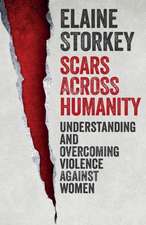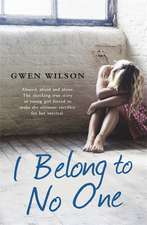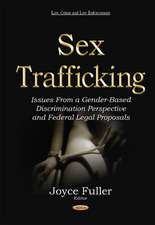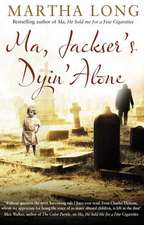Writing Rape, Writing Women in Early Modern England: Unbridled Speech: Early Modern Literature in History
Autor J. Cattyen Limba Engleză Paperback – 30 sep 1999
Din seria Early Modern Literature in History
-
 Preț: 395.47 lei
Preț: 395.47 lei - 20%
 Preț: 566.76 lei
Preț: 566.76 lei -
 Preț: 358.81 lei
Preț: 358.81 lei - 15%
 Preț: 704.17 lei
Preț: 704.17 lei -
 Preț: 408.92 lei
Preț: 408.92 lei -
 Preț: 387.75 lei
Preț: 387.75 lei -
 Preț: 392.60 lei
Preț: 392.60 lei -
 Preț: 389.70 lei
Preț: 389.70 lei -
 Preț: 390.25 lei
Preț: 390.25 lei -
 Preț: 387.20 lei
Preț: 387.20 lei -
 Preț: 390.63 lei
Preț: 390.63 lei -
 Preț: 390.63 lei
Preț: 390.63 lei - 15%
 Preț: 705.51 lei
Preț: 705.51 lei -
 Preț: 389.70 lei
Preț: 389.70 lei - 15%
 Preț: 639.41 lei
Preț: 639.41 lei - 18%
 Preț: 939.94 lei
Preț: 939.94 lei -
 Preț: 388.72 lei
Preț: 388.72 lei -
 Preț: 387.20 lei
Preț: 387.20 lei -
 Preț: 386.61 lei
Preț: 386.61 lei -
 Preț: 388.90 lei
Preț: 388.90 lei - 15%
 Preț: 702.54 lei
Preț: 702.54 lei -
 Preț: 389.11 lei
Preț: 389.11 lei - 15%
 Preț: 642.51 lei
Preț: 642.51 lei - 15%
 Preț: 640.06 lei
Preț: 640.06 lei - 15%
 Preț: 638.43 lei
Preț: 638.43 lei - 15%
 Preț: 698.94 lei
Preț: 698.94 lei - 15%
 Preț: 639.08 lei
Preț: 639.08 lei -
 Preț: 384.86 lei
Preț: 384.86 lei -
 Preț: 388.90 lei
Preț: 388.90 lei -
 Preț: 391.61 lei
Preț: 391.61 lei - 15%
 Preț: 643.00 lei
Preț: 643.00 lei -
 Preț: 391.61 lei
Preț: 391.61 lei -
 Preț: 387.75 lei
Preț: 387.75 lei -
 Preț: 389.70 lei
Preț: 389.70 lei -
 Preț: 390.63 lei
Preț: 390.63 lei - 15%
 Preț: 634.49 lei
Preț: 634.49 lei -
 Preț: 386.81 lei
Preț: 386.81 lei -
 Preț: 390.63 lei
Preț: 390.63 lei - 15%
 Preț: 641.85 lei
Preț: 641.85 lei -
 Preț: 388.72 lei
Preț: 388.72 lei - 15%
 Preț: 638.76 lei
Preț: 638.76 lei -
 Preț: 388.72 lei
Preț: 388.72 lei -
 Preț: 387.75 lei
Preț: 387.75 lei - 18%
 Preț: 728.11 lei
Preț: 728.11 lei - 15%
 Preț: 638.25 lei
Preț: 638.25 lei -
 Preț: 389.11 lei
Preț: 389.11 lei -
 Preț: 389.49 lei
Preț: 389.49 lei
Preț: 386.39 lei
Nou
Puncte Express: 580
Preț estimativ în valută:
73.93€ • 77.19$ • 61.19£
73.93€ • 77.19$ • 61.19£
Carte tipărită la comandă
Livrare economică 04-18 aprilie
Preluare comenzi: 021 569.72.76
Specificații
ISBN-13: 9780230247734
ISBN-10: 0230247733
Pagini: 284
Ilustrații: XXI, 284 p.
Dimensiuni: 140 x 216 x 23 mm
Greutate: 0.38 kg
Ediția:2011
Editura: Palgrave Macmillan UK
Colecția Palgrave Macmillan
Seria Early Modern Literature in History
Locul publicării:London, United Kingdom
ISBN-10: 0230247733
Pagini: 284
Ilustrații: XXI, 284 p.
Dimensiuni: 140 x 216 x 23 mm
Greutate: 0.38 kg
Ediția:2011
Editura: Palgrave Macmillan UK
Colecția Palgrave Macmillan
Seria Early Modern Literature in History
Locul publicării:London, United Kingdom
Cuprins
Acknowledgements Abbreviations Introduction PART I: WRITING RAPE The Meaning of Rape Damsels in Distress: Romance and Prose Fiction 'The Subject of His Tyrannie': Women and Shame in Elizabethan Poetry 'Some Women Live to Struggle': Rape in Renaissance Drama PART II: WRITING WOMEN 'Here the Leaf's Turn'd Down': Women Reading and Writing Rape Translation and Intervention: Jane Lumley and Mary Sidney 'Unbridled Speech': Elizabeth Cary and the Politics of Marriage 'Liberty to Say Anything': Lady Mary Wroth Conclusion Notes Index
Recenzii
One of Choice's Outstanding Academic Titles, 1998-2002
'[A] careful, wide-ranging, often brilliant study that lays the groundwork for all future scholarship in this area. Highly recommended.'
- Patrick Cullen, CUNY Graduate Centre& College of Staten Island, USA
'a pioneering study of early modern rape, that ranges broadly across literary genres and period discourses'.
- Angela Balla, Women's Studies
'Writing Rape, Writing Women is widely recognised as among the most original and nuanced accounts of sexual violence in early modern literature. Jocelyn Catty illuminates the connections between the sexual subjection of women, the construction of female subjectivity in writing, and women's literary agency. More relevant and thought-provoking than ever in its explorations of the meanings of rape, this updated edition is essential reading on women and writing in the early modern period.'
- Dr Helen Hackett, Reader in English, University College London, UK
'[an] erudite and fascinating study [which] demonstrates that 'rape' was a deeply ambiguous term in early modern society'
- Carolyn D Williams, Modern Language Review
'Jocelyn Catty sharpens previous portrayals of female agency by illustrating how rape narratives both restrain and enable women's voices, whether they are those of female characters or of women authors themselves. [ ] Catty maintains the useful tension between treating rape as an event of sexual violence against women and exploiting rape as a condition for the license and circumscription of female utterance'.
- Angela Balla, Women's Studies
'Associating rape with issues of autonomy and self-expression, Writing Rape traces its disturbing relationship to courtships and its engagement with cultural attitudes to female desire. Not the least of the many strengths of this study is its productive juxtapositions of canonical texts such as the two Arcadias and The Faerie Queene with less well-known and archival works.'
- Heather Dubrow, Studies in English Literature
'the precision manifest in her nuanced discussion of the concept of ravishment, the judiciousness apparent in her willingness to qualify her generalizations about issues of power and agency'
- Heather Dubrow, Studies in English Literature
'By combining her study of women's writing about rape with that of men, Catty does much more than offer a simple comparison between the two, she also shows how female writers were able to use the image of rape and its attendant interpretations and stories as a powerful way of justifying their own writing'.
- Jacqueline Eales, Literature and History
'Jocelyn Catty's pioneering and wide-ranging discussion of rape in early modern England deserves attention for its fresh reading of material in early romances, poetic genres, and dramas by many sixteenth and seventeenth-century men and women. [ ] A major strength of the study is Catty's examination of the relationship of rape to female silence as well as to female discourse. [ ] Catty's breadth of vision and the depth of her close textual and mythological readings are extraordinary'.
- Margaret J. Arnold, Renaissance Quarterly
'[A] careful, wide-ranging, often brilliant study that lays the groundwork for all future scholarship in this area. Highly recommended.'
- Patrick Cullen, CUNY Graduate Centre& College of Staten Island, USA
'a pioneering study of early modern rape, that ranges broadly across literary genres and period discourses'.
- Angela Balla, Women's Studies
'Writing Rape, Writing Women is widely recognised as among the most original and nuanced accounts of sexual violence in early modern literature. Jocelyn Catty illuminates the connections between the sexual subjection of women, the construction of female subjectivity in writing, and women's literary agency. More relevant and thought-provoking than ever in its explorations of the meanings of rape, this updated edition is essential reading on women and writing in the early modern period.'
- Dr Helen Hackett, Reader in English, University College London, UK
'[an] erudite and fascinating study [which] demonstrates that 'rape' was a deeply ambiguous term in early modern society'
- Carolyn D Williams, Modern Language Review
'Jocelyn Catty sharpens previous portrayals of female agency by illustrating how rape narratives both restrain and enable women's voices, whether they are those of female characters or of women authors themselves. [ ] Catty maintains the useful tension between treating rape as an event of sexual violence against women and exploiting rape as a condition for the license and circumscription of female utterance'.
- Angela Balla, Women's Studies
'Associating rape with issues of autonomy and self-expression, Writing Rape traces its disturbing relationship to courtships and its engagement with cultural attitudes to female desire. Not the least of the many strengths of this study is its productive juxtapositions of canonical texts such as the two Arcadias and The Faerie Queene with less well-known and archival works.'
- Heather Dubrow, Studies in English Literature
'the precision manifest in her nuanced discussion of the concept of ravishment, the judiciousness apparent in her willingness to qualify her generalizations about issues of power and agency'
- Heather Dubrow, Studies in English Literature
'By combining her study of women's writing about rape with that of men, Catty does much more than offer a simple comparison between the two, she also shows how female writers were able to use the image of rape and its attendant interpretations and stories as a powerful way of justifying their own writing'.
- Jacqueline Eales, Literature and History
'Jocelyn Catty's pioneering and wide-ranging discussion of rape in early modern England deserves attention for its fresh reading of material in early romances, poetic genres, and dramas by many sixteenth and seventeenth-century men and women. [ ] A major strength of the study is Catty's examination of the relationship of rape to female silence as well as to female discourse. [ ] Catty's breadth of vision and the depth of her close textual and mythological readings are extraordinary'.
- Margaret J. Arnold, Renaissance Quarterly
Notă biografică
Jocelyn Catty is currently engaged in freelance research in London.









